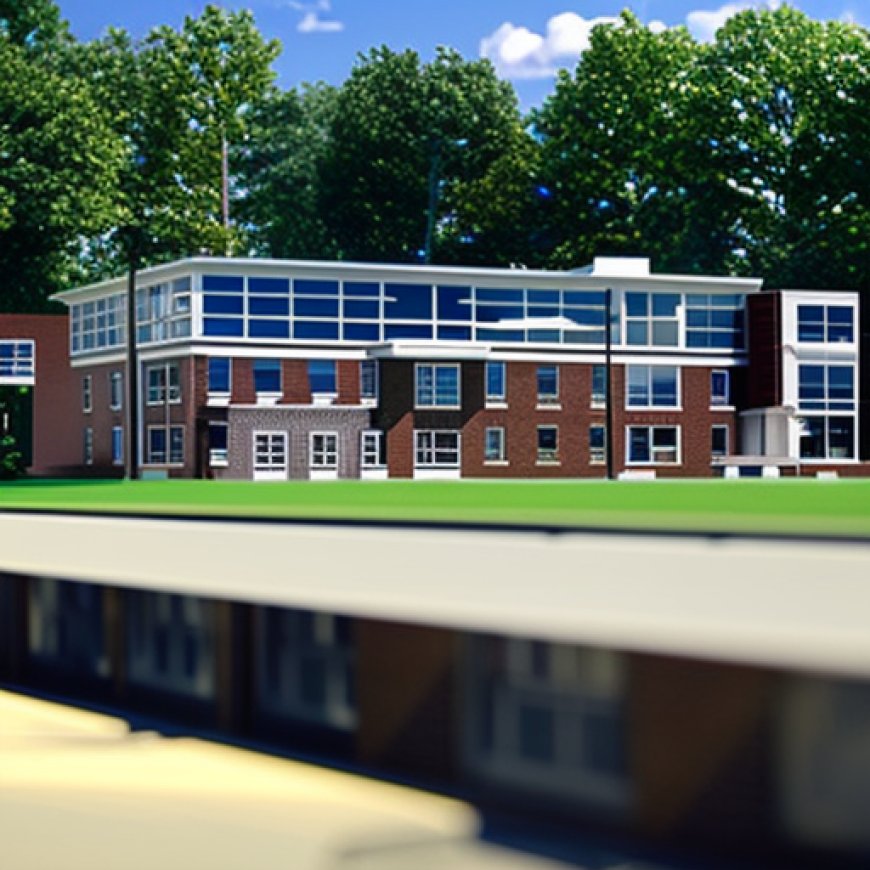Bristol Public Safety Building and David Prouty High School Benefit New England Communities with Energy-Saving Properties of ICF Construction


Utility Savings Tied to ICF Technology Influence Decision to Choose ICF Construction
GREENLAND, N.H., Sept. 26, 2024
As insulated concrete form construction (ICF) becomes more commonplace, local governments, school boards, and communities are experiencing the benefits of energy efficiency, a smaller carbon footprint, and long-term savings in operating expenses. Atlantic Builders Supply Northeast, a premier distributor of Nudura, supplied ICF forms for the new Bristol Public Safety Building in Bristol, New Hampshire and an extensive renovation and new construction project underway for David Prouty High School in Spencer, Massachusetts.
Bristol Public Safety Building
The town of Bristol is reaping the rewards of its new Bristol Public Safety Building, which officially opened its doors on July 31, 2024. This cutting-edge facility not only combines the headquarters of the town’s police and fire departments but also boasts a forward-thinking, energy-efficient design built with ICF construction.
Thanks to ICF technology, the building is highly energy-efficient, reducing heating and cooling costs, while providing exceptional durability and insulation. ICF construction was chosen for the project with an anticipated yearly savings of $20,000 for utilities. The environmentally friendly design not only cuts down on operational expenses but also aligns with Bristol’s commitment to sustainability.
David Prouty High School
David Prouty High School in Spencer, Massachusetts, has made history by becoming the first school in the state to employ ICF construction technology. The school is a master plan of renovation and new construction. Designed by Jones Whitsett Architects, the project calls for renovation of two existing buildings of the school, along with new construction for a total of 127,000 square feet of space. Atlantic Builders Supply Northeast provided 17 tractor-trailer loads of Nudura ICF for the project.
The design for the $111.6 million project creates more accessibility and brings the school into compliance with the Americans with Disabilities Act. With the insulating properties of ICF, the design also brings energy performance up to today’s demanding standards and addresses green initiatives that allowed the school district to access grant money, in addition to the public funding allocated for the construction project.
The decision to use ICF in both projects reflects a broader trend in public construction, with the insulating properties of ICF contributing to significant energy savings and environmental sustainability. At David Prouty High School, ICF construction also provides structural resilience against extreme weather, enhances fire safety, and offers excellent soundproofing, creating a safer, quieter, and more focused learning environment for students and staff. The insulating properties of the ICF design are expected to qualify the school as a Certified High-Performance School, further emphasizing its energy-efficient features.
Conclusion
The successful implementation of ICF technology at both the Bristol Public Safety Building and David Prouty High School highlights the growing impact of ICF in creating sustainable, cost-effective, and resilient buildings across New England. Atlantic Builders Supply Northeast worked closely with contractors on both projects, offering not only the materials but also the technical expertise needed to ensure the successful completion of these groundbreaking projects. School construction is expected to be completed in time for the 2026-27 academic year.
FOR ADDITIONAL INFORMATION, CONTACT KIM PENDARVIS, 404-237-5087
SOURCE Atlantic Builders Supply Northeast
SDGs, Targets, and Indicators
1. Which SDGs are addressed or connected to the issues highlighted in the article?
- SDG 7: Affordable and Clean Energy
- SDG 9: Industry, Innovation, and Infrastructure
- SDG 11: Sustainable Cities and Communities
- SDG 13: Climate Action
2. What specific targets under those SDGs can be identified based on the article’s content?
- SDG 7.3: By 2030, double the global rate of improvement in energy efficiency
- SDG 9.4: By 2030, upgrade infrastructure and retrofit industries to make them sustainable
- SDG 11.6: By 2030, reduce the adverse per capita environmental impact of cities, including by paying special attention to air quality and municipal and other waste management
- SDG 13.2: Integrate climate change measures into national policies, strategies, and planning
3. Are there any indicators mentioned or implied in the article that can be used to measure progress towards the identified targets?
- Energy efficiency improvements in the buildings
- Reduction in heating and cooling costs
- Environmental sustainability of the buildings
- Qualification of the school as a Certified High-Performance School
Table: SDGs, Targets, and Indicators
| SDGs | Targets | Indicators |
|---|---|---|
| SDG 7: Affordable and Clean Energy | SDG 7.3: By 2030, double the global rate of improvement in energy efficiency | – Energy efficiency improvements in the buildings – Reduction in heating and cooling costs |
| SDG 9: Industry, Innovation, and Infrastructure | SDG 9.4: By 2030, upgrade infrastructure and retrofit industries to make them sustainable | – Environmental sustainability of the buildings |
| SDG 11: Sustainable Cities and Communities | SDG 11.6: By 2030, reduce the adverse per capita environmental impact of cities, including by paying special attention to air quality and municipal and other waste management | – Environmental sustainability of the buildings |
| SDG 13: Climate Action | SDG 13.2: Integrate climate change measures into national policies, strategies, and planning | – Environmental sustainability of the buildings – Qualification of the school as a Certified High-Performance School |
Source: prnewswire.com








